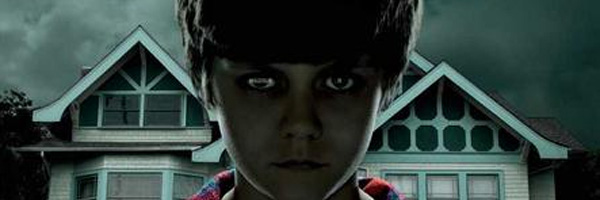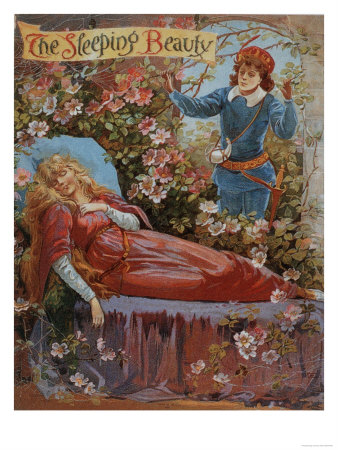My weekends always end up without anything significant but this particular weekend is filled with great events to remember, so I want to write about them.
Saturday, 30th of July -> Couch Potato
My "sungka friends", also with a newly baptized name "movie friends", and I had a great - well, obviously - 'movie time' together at Jamie's, one of our friends' house, at about past three o'clock in the afternoon and we watched two movies in DVD and one was partly from a laptop.

The first movie we watched was "Insidious," - I'm often confused with the spelling - a paranormal, horror movie. I'm not actually fond of horror movies because they either make me laugh at absurd scenes or leave me utterly terrified. For this one, I had a gut feeling that I would get the latter; first, it isn't a Pinoy horror movie and second, it has an intriguing title. I didn't know the meaning of the word insidious until I knew about this movie. Consulting Mr. Google, I found out that the word means treacherous, beguiling or harmful in a subtle, stealthy manner. The movie depicts a boy who is a very accomplished astral projector and whose spirit has the ability to consciously leave the body and travel to a place called "the further." The boy fell into a coma for quite a long time and the medical doctor was not able to give a clear explanation of such. While munching on assorted corns, nuts and peas, we watched strange, disturbing, diabolical happenings unfold in the lives of the family. Believing the house was haunted, they decided to change residence but the same terrible things happened. As they were trying to understand the logic behind those events, the family consulted paranormal experts who helped them unveil the mystery. Now on our Moby snacks, we learned that the boy inherited the trait of being an astral projector from his father who was incredulous at first but, later on, accepted the truth upon seeing the boy's drawings that accurately described the places where the boy's spirit traveled. Interesting movie! I don't want to tell the reason bad spirits are chasing them. I hope I've just said enough for a non-spoiler. There were a couple of shrieks from one of us and a lot of dog barks - hopefully the dogs were not seeing spirits - and the ending part was not a happy or resolved closure; nonetheless, it was a fine movie and I would rate it 3 out of 5 stars for not making me feel terrified.

The second movie we watched was "3 Idiots," an inspiring, hilarious, melodramatic Indian film about three friends, who faced challenges and pressures in their college life as engineering students leading to both positive and negative ramifications. The movie made me recall my whole working experience as a TIBCO Consultant in India and I can say pressure isn't uncommon in the workplace. I remembered working for more than twelve hours a day, straight seven days a week. I'm not entirely against overtime if the project is critical and needs to meet a deadline but maybe not to the point of overstretching the working hours of the team. I'm not a kind of person who is not good at handling pressure and doesn't like pressure at all. But like they say, "Aal iiz well..." and you'll get a strong kick from within to be able to start again. I guess it's sort of a Buddhist principle. We enjoyed every song and dance segment in the film typical of Bollywood, the beautiful, picturesque views of different places, the colorful costumes that include sarees, kurtas and turbans, and lots of infrastructures having a wonderful and intricate architecture. The whole movie presents an overview of the Indian culture and there are many more to uncover; truly, India is incredible! Aside from the three main characters, one person made an imprint on my mind and that is Professor Viru a.k.a "The Virus", the Einstein-ish director of the school, who made the lives of the three idiots a living hell. I remembered in him our Science teacher, Professor Vi for Villarico, way back in high school, who used to turn a lecture into a semi-horror-thriller because everybody was silent and rigid on her seat and couldn't speak a word when asked during recitation. He even commanded the entire General Science class to have their seats face backward until one would be able to answer his question. I was one of those who were able to give a decent answer but I wasn't so proud of it because no one was looking at you while you were having your spotlight. Facing in front while the rest are doing the opposite made me feel silly. It didn't made me feel superior at all. His teaching method wasn't fair although I didn't completely disagree with such. Our teacher also had a point why he was like that and I know he only wanted to make the learning more challenging which I prefer over a mediocre, "spoon feeding" method. But I guess that teacher was only having a weird behavior at that time because he failed the Chemistry licensure exam. I couldn't count the number of swearing he had committed but for me, he was one of the memorable teachers I had. During college, I actually didn't get into trouble in Physics and even got the highest possible grade in two courses. But the only difference between Professor Viru and Professor Vi is that the latter wasn't a bookish type. Professor Vi even challenged the definitions from our uber thick Physics book and made his own interpretation. I liked that all our essay questions should begin with "Because..." Of course, he didn't want us to make a story, did he? "This is not an English class," he once said smugly. While we were at the height of excitement, the disc went awry and pictures came in slow-moving slide shows, which turned out to be entertaining and funny - like a "Face Dance" showing varied expressions of actors - especially that part in which the laboring woman was struggling and wrenching atop a tennis table. In the end, we decided to switch it off and continue using a laptop connected to the TV. Hurray to technology! We were able to see the ending! I would rate the movie 5 out of 5 stars for inspiring us.
Sunday, 31st of July -> Family Day-out and Fun Run Turned Walk
Sunday was supposed to be a laid-back day but in the morning we went to our late uncle's burial. I'm not sure if it should be called a burial because burying the dead is commonly done in a funeral park and the casket is placed down a tomb. This time it's not a funeral park, a casket and a tomb, but a crypt, an urn, and an ossuarium. My uncle was cremated when he died at age 55 of certain complications related to his stroke that happened more than ten years ago and maybe those complications were side effects of medications. The crypt can be found in San Sebastian Cathedral here in Bacolod. I was surprised to know that they have opened this to public because when I was a child, I used to serve as a sakristan or altar boy and I didn't attempt to go inside this creepy place. I initially thought the place was exclusive only for burying priests and bishops. The place seems to be well-lighted during daytime and it doesn't scare me much knowing it's inside a church, it's Sunday, and there are many people around.

While waiting for the burial to be done, instead of weeping - it has been a long time since uncle died though - we busied ourselves with our cousins whom we hadn't spoken to for quite sometime: picture taking, teasing, laughing, having a great time. It was just so easy for us to bond again together as a family. How we miss those moments when we were just kids and now we are as tall as or taller than our parents. We already have nephews and nieces! We just reminisce those moments when we were very little and were just running here and there. I saw my nephew running all over the place and I remembered my own childhood. He was running alone yet careless and free. After the burial, we went to Tita Ping's for lunch and continued the bonding moments. Next occasion? Most definitely, my cousin's wedding in November.

After the burial, my sister and I went to SM to kill time for we still have to go churching after a couple of hours. We talked about her eye problem and how she was uncomfortable when doing her auditing work. So we decided to go to Sarabia to have her eyes checked. When she was done, I was shocked to hear that she has over 3.00 optical power in both eyes and it would be her first time to wear glasses. She told me she was scolded by the optometrist for not having her eyes checked earlier. Hers is close to my optical power which is 4.00 and I'd been wearing glasses for ten years already! She told me she didn't let herself be bothered by this problem before until lately she has felt the discomfort. She is an awesome example of resilience for me. The good thing is that she was able to disclose to me the problem before her condition even got worse. I'm glad I was able to do something about it.
In the afternoon, I joined a Fun Run at Night event for the benefit of Bantay Bata 163 Foundation, an organization that takes care of abused, underprivileged children. Starting in front of Provincial Capitol, I did the 5-kilometer run which turned to walk in the second half after the pivot. Well I'm not really an athletic type but I can run very far given certain conditions. No excuse but I was kinda tired that day. But still I'm happy because I was able to finish the track slowly but surely. Running has a huge benefit to our physical body and it always teaches me the principle of "Never give up." When I feel like giving up, I recall the story of the hare and the tortoise. I don't live to compete with others but I live to be above myself. Every time.



















